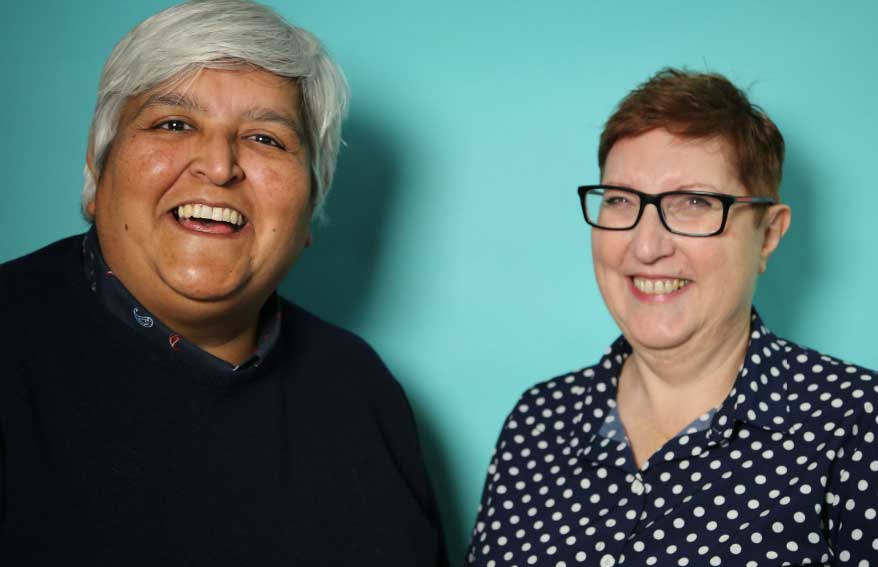Housing is a feminist issue
There is a clear link between gender inequality and the challenges women face in securing a safe and affordable home

STRATEGY
Image: Istock

Zaiba Qureshi (L) and
Denise Fowler (R)
Co-chairs, Women’s Housing Forum
You only have to look at some of the structural inequalities women face to understand why, at the Women’s Housing Forum, we believe that housing is a feminist issue. Both the systems preventing women from securing and sustaining suitable housing, and the impact this has on their lives, mean that women are disproportionately impacted when it comes to housing. Why is this and what can be done?
The housing affordability gap
Truly affordable housing should cost less than a third of a household’s income. However, research by the National Housing Federation for the Women’s Housing Forum in 2018 showed that there is no region in England where a woman earning an average woman’s income can afford to live in a privately rented property. Conversely a man on an average male salary could afford to rent in every region except London.
The hourly gender pay gap was only part of the story. As women are more likely to work part-time or have gaps in employment due to caring responsibilities, the study found that women’s overall earnings were, on average, 34% less than men’s.
Women on average earn less, and have lower levels of wealth, than men, making it more difficult to find and secure suitable housing for themselves and their families. There is a clear housing affordability gap.
“There is no region in England where a woman earning an average woman’s income can afford to live in a privately rented property. Conversely a man on an average male salary could afford to rent in every region except London”
The impact of COVID-19
The coronavirus pandemic has exacerbated many of the existing inequalities within our society. While men appear to be more likely to become ill with the virus, women, particularly BAME women, have been disproportionately affected by the socio-economic impact of the crisis.
In a post-COVID-19 recession, the two sectors likely to be hardest hit are hospitality and retail, both of which employ significant numbers of women. As a result, more women are having to access universal credit – with those who are single mothers making up 85% of those affected by the ‘benefit cap’. The Institute for Fiscal Studies and the UCL Institute of Education found that mothers were 47% more likely to have permanently lost their job or quit.
The restrictions of lockdown during the pandemic also led to a surge in domestic abuse cases. Refuge, a national domestic abuse charity, reported a 700% increase in calls to its helpline in a single day during April 2020. This issue is further exacerbated by the limited options of affordable move-on accommodation available to women who have been housed in temporary accommodation during the crisis.
How unaffordable housing affects women
- Earning capabilities: The lack of affordable housing often prices women out of areas where they can find suitable, well-paid jobs, forces them to travel expensive and long distances for work, and restricts their earning capabilities due to their childcare responsibilities.
- Reliance on support networks: Women, and in particular single mothers, often rely on a social network of friends and family for informal and affordable/free childcare which give them greater access to employment opportunities. These networks were unavailable to most during the lockdown.
- Safety: Being unable to access, and keep, safe and suitable housing can trap women in abusive relationships or push them into homelessness.
- Homelessness: Being unable to afford a safe home leads to high levels of homelessness for women and their children. Single-mother families make up 60% of all homeless families in the UK. (“A home of her own,” Women’s Budget Group, 2019)
- Poverty: Women are more likely than men to be poor. Unaffordable housing costs, coupled with lower incomes, means that 20% of women are living in poverty. (“A home of her own,” WBG, 2019)
Coming together to tackle inequalities
Since our inception, our mission at the Women’s Housing Forum has been to strengthen our members’ collective voice, to raise awareness and affect change.
So far, we have partnered with the National Housing Federation and the Women’s Budget Group to deliver fundamental research, and explored the relationship between women and homelessness with Homeless Link. The Forum’s steering group members include Housing for Women, Women’s Pioneer Housing, Shelter, The National Housing Federation and TPAS.
We want to do more. We want to share best practice and encourage collaboration across the sector. With more resources we could deliver more information and events for the sector, raising awareness of existing and emerging issues and identifying opportunities for partnership working. Please get in touch and help us take effective action.
Those with an interest in women and housing can find out more about joining the Women’s Housing Forum here.


